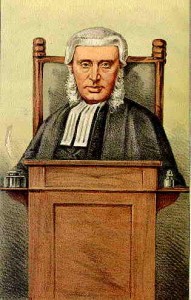Signing a Recall Petition Does Not Require Judicial Recusal
 We live in interesting times. A segment of the general public is quick to forgive the killing of two young men in Slinger, Wisconsin and Sanford, Florida as the unavoidable consequence of the exercise of a constitutional right. Yet at the same time, state court judges who have exercised their constitutional right of self-governance by signing a recall petition are being publicly called out by both special interest groups and the media, as if by signing the petition they have transgressed some moral boundary. These are interesting times, indeed.
We live in interesting times. A segment of the general public is quick to forgive the killing of two young men in Slinger, Wisconsin and Sanford, Florida as the unavoidable consequence of the exercise of a constitutional right. Yet at the same time, state court judges who have exercised their constitutional right of self-governance by signing a recall petition are being publicly called out by both special interest groups and the media, as if by signing the petition they have transgressed some moral boundary. These are interesting times, indeed.
The signing of a recall petition is a right guaranteed by Article XIII of the Wisconsin Constitution. It is a procedure whereby any voter can request that the continuation in office of an elected official in the State of Wisconsin should be put to the vote of the full electorate. If a sufficient number of voters sign the petition, a recall election is held. A recall can only succeed in removing the officeholder if both a sufficient number of recall signatures are filed and a majority of the electorate votes in favor of removal. The Recall is democratic self-governance in its purest form, and along with the Initiative and the Referendum it is one of the three structural vehicles by which Progressive Era voters sought to bypass the influence that special interests hold on elected bodies.
The Wisconsin GOP has filed an official complaint against Dane County Circuit Court Judge David Flanagan with the Judicial Commission on the grounds that the judge should have recused himself in a case challenging the constitutionality of the Wisconsin Voter ID law. Must judges who have signed a recall petition subsequently recuse themselves from sitting on any case in which the Governor, or Republican legislators, or the Republican Party of Wisconsin asserts that the signing of the petition evidences a bias against them? The answer is “no.” There is no explicit provision that prohibits judges from signing a recall petition or that mandates that they recuse themselves from any politically charged case if they have done so.
